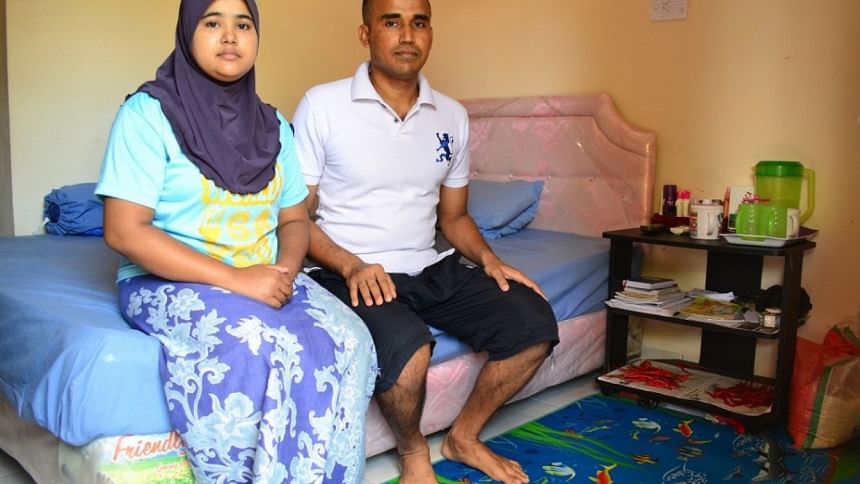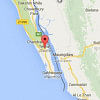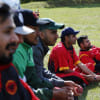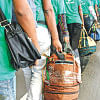Minara's escape from Rakhine persecution

I met Mohammed and Minara Ali in Makassar, a bustling city on the south-west coast of Indonesia's Sulawesi Island. We sat in their small, neat room in a building managed by the International Organization for Migration (IOM) that houses dozens of refugees.
Mohammed and his wife, Minara are Rohingya – an ethnic, Muslim minority group who have faced decades of persecution and discrimination in their home country of Myanmar. The Alis lived in Sittwe, capital of Rakhine State, until June 2012, when riots erupted between the majority Rakhine Buddhist population and local Rohingya residents.
"The Rakhine people set fire to all the Rohingya houses and the military were shooting at us," recalled Mohammed. "I took my wife and ran. "My father was killed by the shooting and until now, I don't know what happened to my two younger brothers." The Alis joined hundreds of Rohingya who were fleeing Myanmar by boat. "We didn't know where we were going," Mohammed told me. "We were just saving our lives."
Minara paid for their passage with her wedding ring and after many days at sea, they reached Malaysia. Mohammed found work labouring in paddy fields for a salary of USD 150 a month, but the police regularly stopped him and confiscated his money making survival there almost impossible.
They decided to sell what was left of Minara's wedding jewellery to pay a smuggler to take them to Australia. But the boat they took from Indonesia broke down after two days and they floated at sea for another three before reaching a deserted island. Hungry and desperate, they phoned the Indonesian authorities to come and rescue them. They spent the next year in detention in Jakarta – five months in a cell at the city's immigration headquarters and the remaining time at an immigration detention centre where they were able to apply for asylum."We suffered a lot in detention," said Mohammed. "There were many mosquitoes and it was dirty and, in the first place, we weren't allowed to talk to UNHCR or IOM."
After being granted refugee status, they moved into the IOM accommodation in Makassar. Now they spend their days waiting for UNHCR to come with "good news". Good news would mean resettlement to a country where they could live without fear and earn a living, something that is not possible in Indonesia where refugees are denied the right to work.

 For all latest news, follow The Daily Star's Google News channel.
For all latest news, follow The Daily Star's Google News channel. 








Comments